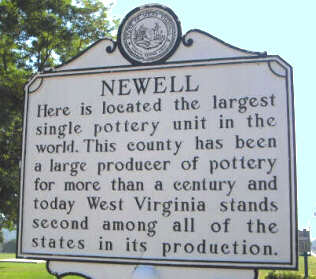|
In 1934, the defunct plant of the Kenilworth Tile Co. - burned and rebuilt in 1919 - was taken over by the New Castle Refractories Co., partly due to the demand for saggers [1] which came with the decline of the upright kilns. Prior to the advent of tunnel kilns, each pottery made its own saggers, but with the establishment of the new kilns and the demand for cast saggers, the New Castle firm started its plant and area potteries closed their sagger shop, the workers going to the new firm.
In 1945 with market call for saggers, New Castle also installed a tunnel kiln, and now employs about 150.
The Metsch Refractories was founded at Newell in 1919 in a building at 3rd and Harrison Sts., which had housed the Electrical Refractories, a firm that is now located at East Palestine.
The Metsch firm continued at that location until January of this year when fire damaged the firm and it relocated at the old Continental Kiln Co. structure at Chester.
In 1925, the Finley Lumber Co. of Chester started the Newell Lumber Co. at Washington St. and 2nd St. The lumber yard was damaged by fire in 1930, was rebuilt the same year and continued at the site until 1943 when the yard went out of business.
 Newell today has an estimated 2,300 residents and 600 homes. It has an active Lions Club interested in community service and energetic veteran's organization in American Legion Post 114, also a leader of community functions.
Supplements to the civic responsibilities are the Newell women's club and the axillary of the American Legion. Newell today has an estimated 2,300 residents and 600 homes. It has an active Lions Club interested in community service and energetic veteran's organization in American Legion Post 114, also a leader of community functions.
Supplements to the civic responsibilities are the Newell women's club and the axillary of the American Legion.
The town lacks room for any large-scale industrial or residential expansion, although Newell Heights provides ample sites for homes. However, Newell, with its gigantic pottery production capacity, will be a steadfast center of the industry for years to come. And as a link in the growing industrial program of the Ohio Valley, the town faces the future with the continued promise of its early boom days.
1 A sagger is a clay container used to stack wares as they are fired in kilns.
|